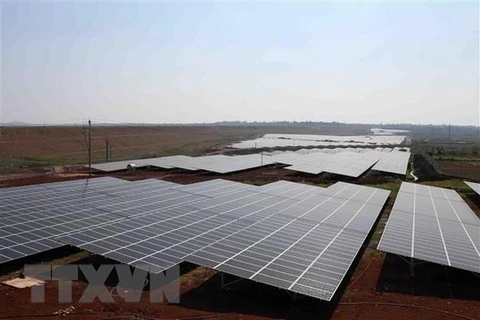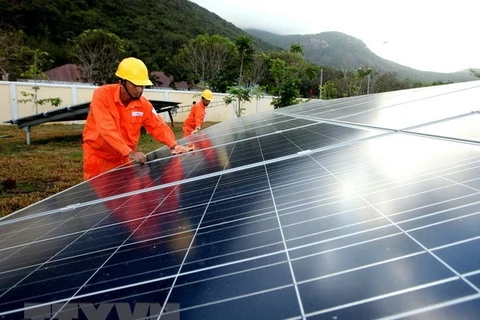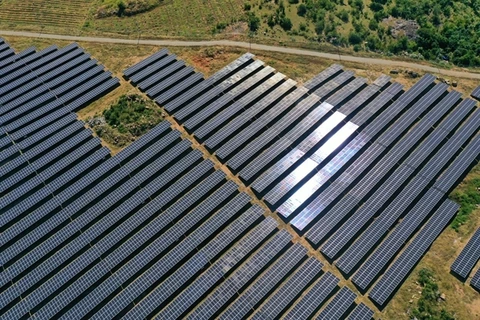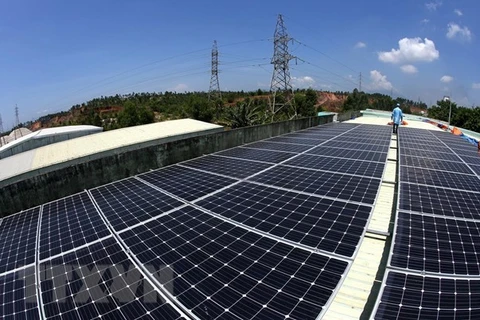 A worker examines panels of the TTC Duc Hue 1 solar power project in the southern province of Long An (Photo: VNA)
A worker examines panels of the TTC Duc Hue 1 solar power project in the southern province of Long An (Photo: VNA) Hanoi (VNS/VNA) - The Ministry of Industry and Trade (MoIT) has called for more solar power producers in Vietnam to enjoy fixed feed-in-tariffs (FIT) instead of a bidding mechanism.
Earlier this month, the ministry was still considering a bidding plan for all solar projects without power purchase agreements (PPAs) signed before November 23 last year in the country. However, it now thinks that could have a negative impact.
The ministry sent a report to the government on Tuesday, suggesting that solar power projects approved before November 23, 2019, that begin operating before January 1, 2021, should enjoy fixed feed-in-tariffs (FIT) of 7.09 cents a kWh for plants on land and 7.69 cents for floating plants.
In the previous proposal, MoIT suggested fixed rates would have applied only to projects that had begun construction before November 2019, operated this year; and signed power purchase agreements (PPAs).
In the letter sent on Tuesday, it said: “Investors of the projects that have been granted investment certificates have spent a lot of time and money on planning, site clearance, preparations for construction and technical design evaluation. Not getting a PPA is an unwanted issue,” adding the previous regulation would slow down projects of those without a PPA.
MoIT thought using a bidding mechanism could waste more time, money and resources for investors.
Instead, it wanted to apply fixed feed-in-tariffs (FIT) for 36 projects nationwide, with a total capacity of 2,989 MW. Those projects received investment certificates before November 23, 2019 without PPAs.
Together with seven projects with a total capacity of 517 MW and signed PPA contracts, there will be 43 solar projects to enjoy the fixed prices.
Earlier on February 12, the World Bank released a new report recommending Vietnam adopt two new deployment schemes for projects: competitive bidding for solar parks and substation-based bidding as they will help to address curtailment – or underuse of solar generation capacity – as well as improve risk allocation between public and private investors.
The report recommends setting yearly and medium-term solar deployment targets and revisions to the legal framework covering the competitive selection of independent power producers.
Facing a grid capacity shortage, Vietnam has been licensing a number of solar plants. So far, solar plants with a total capacity of 25,000 MW have been licensed, far exceeding the government’s target of 4,000 MW by 2025./.
VNA
























